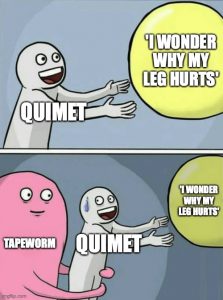So… this has been romance studies. To be honest with you, it is not really what I expected, but I don’t know if I had any expectations coming into the class. I do know that I had NO idea about what romance studies would be and what type of literature it encompassed, which I now see as something that I enjoy. Although I did not love all of the books, I have really enjoyed reading the books that were required for the course. As the weeks went by, I found myself finding commonalities and links between many of the books, which was really fun for me to kind of see. Reading new novels each week felt like gaining more clues to a scavenger hunt with an ending unknown (ominous, huh? Good. That is what I intended). Jon asks in his lecture if ‘every text we’ve read truly singular and absolutely distinct’ as one question to reflect upon the class with. I would say absolutely not! There are so many similarities with all the books, and I can guarantee you that Jon did not just choose these books willy nilly; there is intention within the choices, and themes we as romance studies students should pick up on. I noticed when reading other peoples blog posts, that there were tons of links between the books, and I saw that too. Even with something as simple as the places in which these novels are written, there are commonalities there! For example, the novels Agostino and My Brilliant Friend were both set up in Italy in areas somewhat near the seaside (Agostino is practically on the ocean, My Brilliant Friend is set up close enough to it for me to count it). These are two different stories, and the more that I think about it, the more I can draw parallels between the two stories (like the way that the kids in each book have such free range, or spend their time growing up and learning about the people and world around them). Something that was semi-intentional (ish?) Is the fact that many of these novels include growing up (as stated in Jon’s lecture). I am always interested in reading coming of age novels, where children begin to make sense of the world around them. I think this always interests me, because I found (and continue to find) growing up to be an interesting thing. I can find it complicated and difficult, and I think that is part of the reason why I find it interesting to read other accounts of how other people grow up; I do not think that I can relate to a lot of these characters, but I think that there are small commonalities that I can find between the characters, which is interesting.
My experience in this course has definitely helped me make sense of these texts, and to help develop my skills as a literary analyzer; this seems sort of robotic to say, but I think its true! Reading books with themes like this in a way feels like solving a puzzle, looking for clues, and finding things with deeper meaning; that is something that I love to do! I go to the art gallery to find more meaning in art, and I feel as if in this course I have read books with significant meanings that have broaden my mind, especially with reference to literature. Thank you all so much for engaging with my posts this past term, and I cannot thank Jon, Jennifer, and Patricio for making my experience in this class a very memorable one. Now, to wrap up my final blog post, I would like to leave you all with some questions: has this course enhanced your perspective on literature? Would you change anything about your experience with this course? I would love to hear everyones thoughts about these questions, because I feel as if I have gained a ton from this class, but would like to hear what others think.

